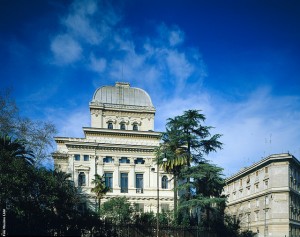NEWS Italian Rabbis: “Spirituality must be protected”
“We all have the duty to respect public health policies. However, harmony between spirit and body also plays a role in the health of individuals and society,” said Rabbi Riccardo Di Segni, chief Rabbi of Rome. In a note, he commented on the governmental decree on the so-called ‘phase two’, especially on the matter of places of worship.
According to Rabbi Di Segni, even in this scenario, in which the health situation is as alarming as the economic and social collapse it will lead to, “there are ways to ensure safe access and religious gatherings in compliance with health regulations.”
“The government”, said chief Rabbi of Rome, “is making serious and difficult decisions, but it should not neglect the spiritual needs of religious communities, each of them with their peculiarities. It is exactly these communities that ensure social cohesion and development.”
According to Rabbi Giuseppe Momigliano, chief Rabbi of Genoa and board member for religious affair at the Union of the Italian Jewish Communities, “It would be very important to restart religious services in synagogues or in other community spaces, while following all necessary measures.”
“When other places are opened, from museums to shops, a block on religious activities would not turn out as a sensible decision. We should remember that public prayer in a community space cannot be replaced by online prayer. You can study remotely. But you cannot pray,” he added.
“Just like any other institution,” said Rabbi Adolfo Locci, chief Rabbi of Padua, “we have to act in compliance with governmental decisions without making judgements. When we receive the go-ahead, the subject of training will be fundamental to enforce all norms in the right way.”
Rabbi Locci offered the example of his own community: “Our synagogue is not very big, and it has just one entrance. It will hence be necessary to take specific measures. For example, I am envisaging a hand-sanitizer dispenser at the door, as well as limited participation in services and different modalities for callings to an Aliyah. All of these possibilities should be assessed carefully. Only if we are able to enforce the rules will we reopen. All beneficiaries of our services must be safe.”
“The government has the duty to safeguard health and public safety. But it cannot legislate for or against the right to religious services. This is a moral and ethical matter on which we must assert ourselves. It is time for synagogues to be reopened, with all necessary measures. This cannot wait longer than May 4th,” stated Rabbi Alexander Meloni, chief Rabbi of Trieste.
“People,” he continued, “need spiritual comfort as well. This lockdown has opened many wounds. If museums are opened, all the more reason to restart attending places of worship.” According to Rabbi Meloni, a hard-line approach is needed: “We have given up Pesach, we cannot do the same with Shavuot.”
Translated by Claudia Azzalini and revised by Sara Facelli, both students at the Advanced School for Interpreting and Translation of Trieste University and interns at the newspaper office of the Union of the Italian Jewish Communities.

